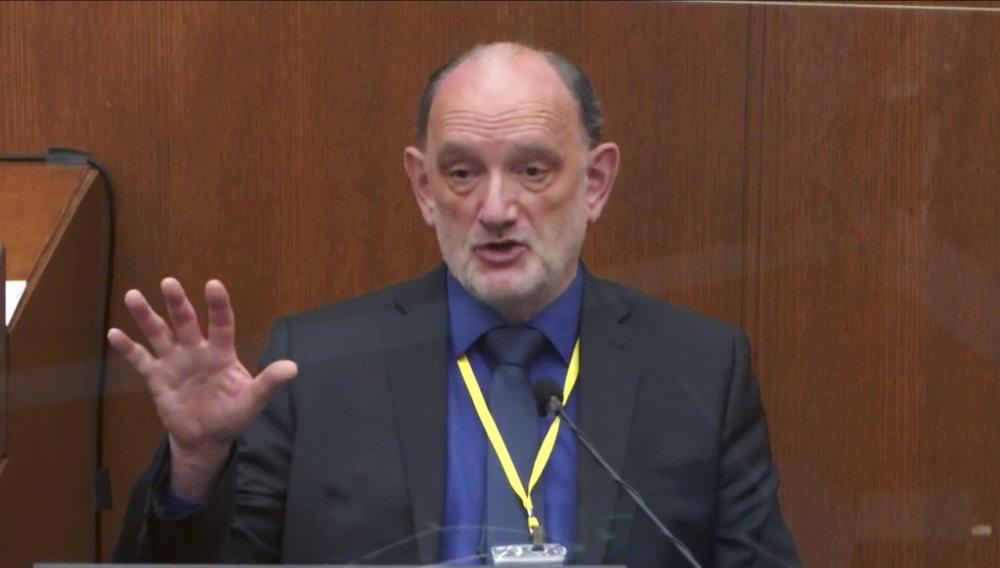The death of George Floyd should be categorized as “undetermined” instead of “homicide,” said a former medical examiner during the trial for officer Derek Chauvin, who was accused of killing Floyd.
“In my opinion, Mr. Floyd had a sudden cardiac arrhythmia due to his atherosclerosis and hypertensive heart disease ... during his restraint and subdual by the police,” Dr. David Fowler, who previously headed a medical examiner’s office in Maryland, said on Wednesday during Chauvin’s trial in Minneapolis.





